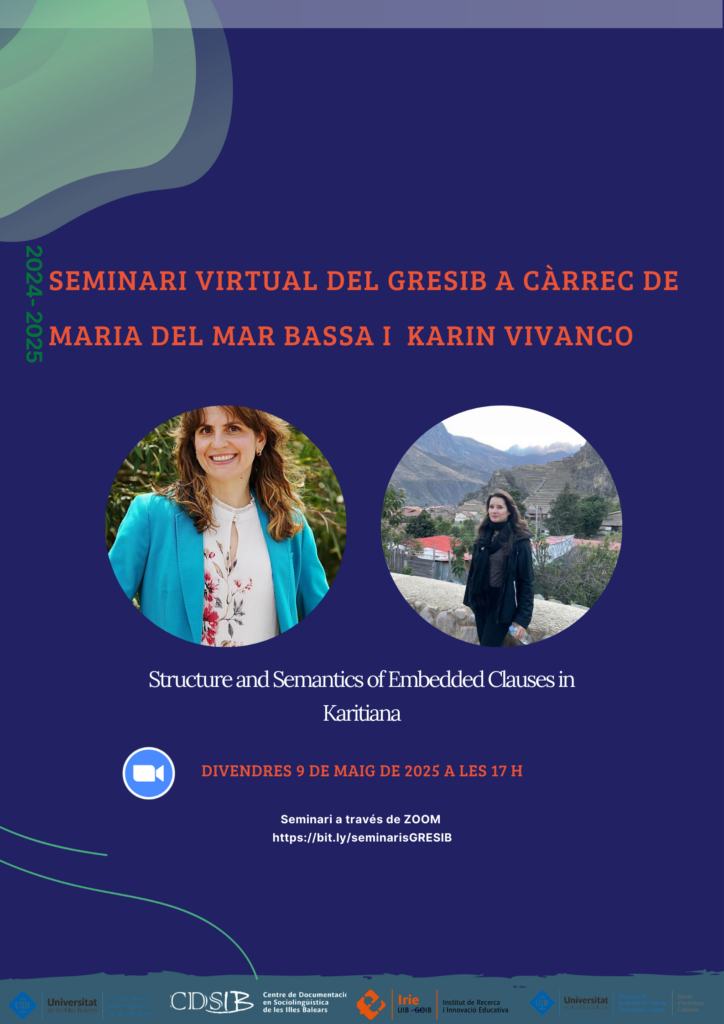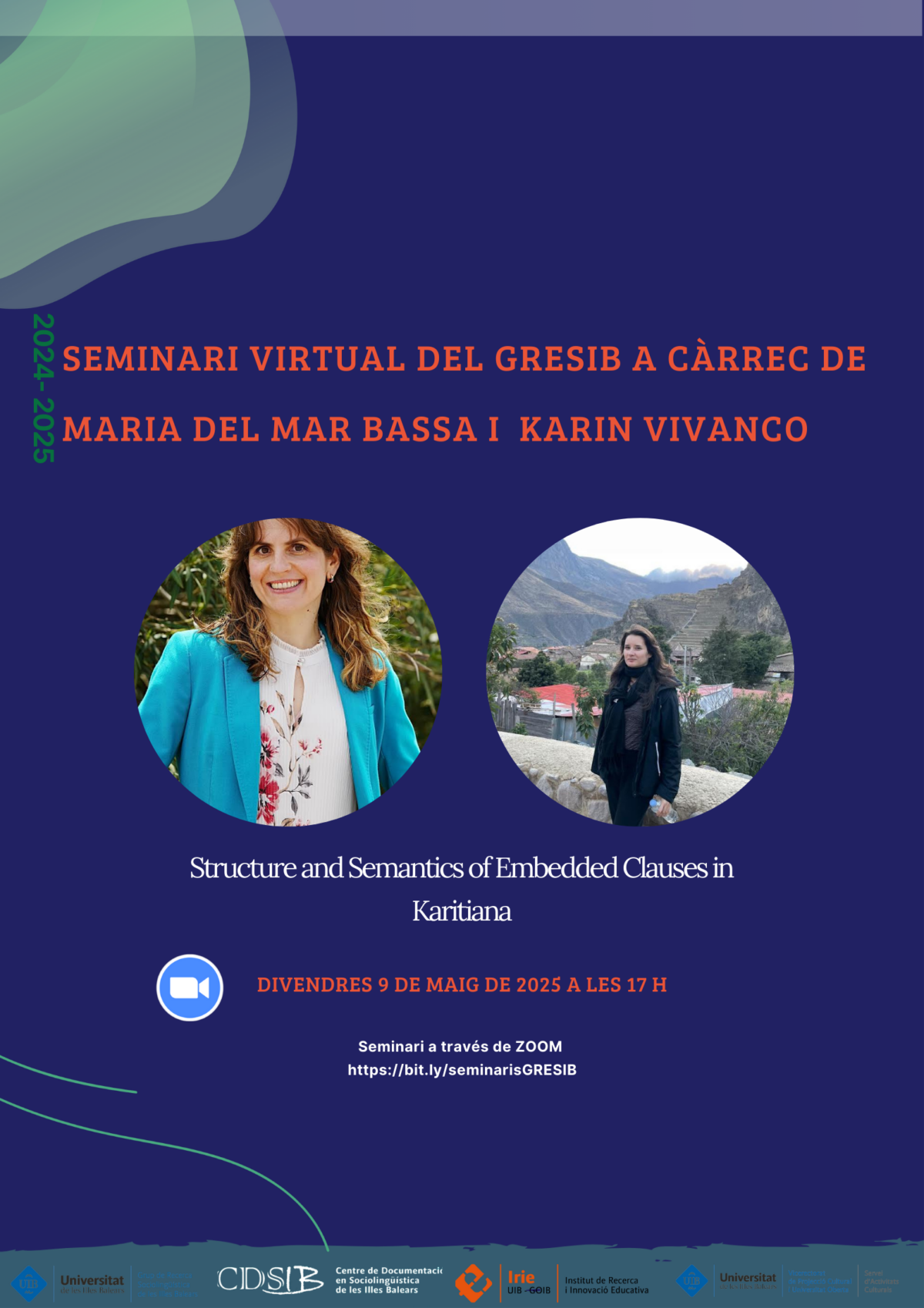
Structure and Semantics of Embedded Clauses in Karitiana
Karitiana is a Tupian language spoken in the northwestern State of Rondônia in Brazil by around 400 people. As any other indigenous language in Brazil, Karitiana is highly endangered due to its low number of speakers and the vicinity of several potential threats to the lives of its speakers. Analyzing and preserving their form of communication is essential to understanding the diversity and universality of human languages, particularly in terms of linguistic structures and the scope of possible meanings derived from them.
In this seminar, we will focus on two unexpected and interesting patterns in the grammar of Karitiana. A first feature to examine is the use of a negation particle, ki, to convey temporal information (the middle line, called gloss in Linguistics, shows the literal translation of each word): (1) “João naakat iosednat carroty Maria amy kit” (João was happy car Maria buy not). Translation: “João was happy before Maria bought the car”.
As one can see in the data above, there is no word in the Karitiana sentence equivalent to ‘before’, and it is the negation itself that seems to give rise to this meaning. We analyze how this interpretation is generated and whether negative ki can also behave as a temporal operator like English “before.”
A second surprising semantic characteristic in Karitiana worth addressing is related to factivity. The unusual fact is that in Karitiana the following two-sentence sequence in (2) may be judged as a contradiction by the speaker. By contrast, in English, and other well-studied languages, it is not contradictory to utter something along the following lines: “João thinks that Luciana killed a jaguar, but Luciana did not kill a jaguar.” This contrast in acceptability is shown below:
(2a) João naakat ikoro’op kãrat Luciana obaky okyty (João thinks Luciana jaguar kill). Translation: “João thinks that Luciana killed a jaguar.
(2b) ≠Ioky padni Luciana obaky (kill not Luciana jaguar). Translation: “But Luciana did not kill the jaguar”.
These two striking grammatical properties—-the temporal interpretation of the negative particle ki and the phenomenon of factivity, both involving embedded clauses—together with an analysis of their semantic and pragmatic ramifications and consequences in the language will be the main theme of the seminar, among other sociolinguistic and language acquisition implications.
Accés al seminari: https://bit.ly/seminarisGRESIB

